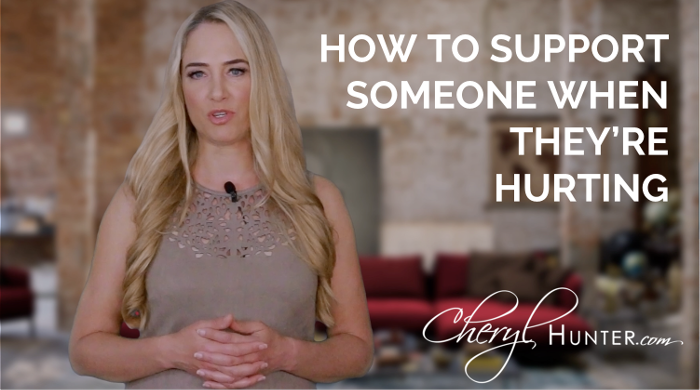In her piece, A Message From My Mother That I Will Cherish, Maria Shriver discussed how hard grief and grieving are. She wrote, “In reality we are all grieving. We just do it in different ways.”
If that’s true – that we all are either grieving right now, or we will be grieving at some point in the future – it would be immensely helpful to equip ourselves to face the hurt when it happens. If we were oriented around doing so, we might not only equip ourselves, but start to inquire into how we could best support others in facing the inevitable challenges, adversity, and hurt that they’ll encounter in their lives as well.
You may not know my story; while traveling abroad as a teenager I was abducted by two criminals who held me captive, beat and raped me, then left me for dead.
Eventually, I made a U-turn with my life and found freedom. In the process, I realized I was not alone—each of us faces circumstances we would never have chosen for ourselves, and most of us are unprepared to recover when that happens. I became fascinated with the study of freedom and resilience and made it my life’s work to understand how some people recover from extreme circumstances, while others don’t.
Today in addition to running a coaching company which helps people be powerful in the face of change, I’m regularly called upon by national news networks to offer advice on how people can be resilient after facing anything from trauma to day-to-day challenges.
The bottom line is, I know exactly what to say to someone who is in the grips of heartache, grief, loss, and despair.
Or, at least I should.
Lately, the opposite has been true. Recently, I found myself stuck and stumbling when trying to support a colleague whose husband passed away unexpectedly. I was baffled by the disconnect I experienced when trying to come up with the right thing to say or do – I mean, I know precisely what to say about how people and communities can come together after terrorist attacks or school shootings – but somehow when faced with the intimacy of trying to offer solace to my dear colleague, I found myself at a loss. Out of embarrassment, I pulled back, which only made things worse.
I decided it was time to get to work again, not only for myself and my own relationships, but to have something to offer others. I was determined to figure out what would make the biggest difference to hear and receive from our loved ones during our time of need.
I interviewed over a dozen people to get their take on the topic. I learned that I’m not alone; many of us struggle with what to say and how to behave when those we know are hurting. We all want to help, but despite our best intentions, sometimes, “I’m sorry,” just isn’t enough, and saying, “I’m here for you,” doesn’t quite cut it, either.
If you’ve ever stumbled when reaching for the right thing to say to someone who is hurting, this video will help. In it, I lay out specific steps you can take to support your loved ones in moving through the challenges they face.
You may want to pass the video along to your loved ones as well; who knows; perhaps they’ll be able to better support you in your own hour of need!
I’m committed that this video provides something for you and your loved ones when you need it most. After all, if grief is inevitable, we may as well arm ourselves, so that when it happens, we can face it with grace and ease.
Here is the video: from my heart to yours.
Once you watch the video, let me hear from you. Use the comments section below to let me know what you’d add to the list. What do you feel is the best way to help someone who is hurting?
PS: If you enjoyed this post and video, you may want to check out my companion piece: Never Say This When Someone’s Hurting.


It’s hard at times to know what to say or do and if you really love and care about the person, you want to do or say something to make a difference for them, to help them get through whatever it is they must get through. Sometimes though finding the right actions to take or the right things to do or say to just let them to know they can be whatever they need to be with you, say whatever they need to say or just be alone for awhile is ok …. Can be difficult. I have learned that we all react to loss differently, but it is not personal to those who care. Sometimes if we can give a hug it’s enough, sometimes a listening ear is enough and I have found that that seems to be what most people want, they want their pain to be heard and gotten. Our friends and family really do care about us and it’s not phony, but with loss we get lost in how to be for those we love and care about. My friends sister lost her son a few years ago and it was a crazy time for, hating everyone. I finally said to her, I love you and forgive you for everything, but I request you get help for yourself to get you through this. She did and all is on an upward path.